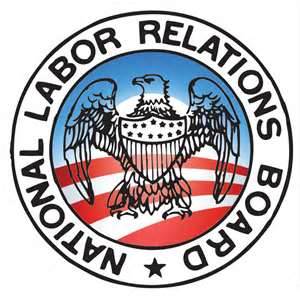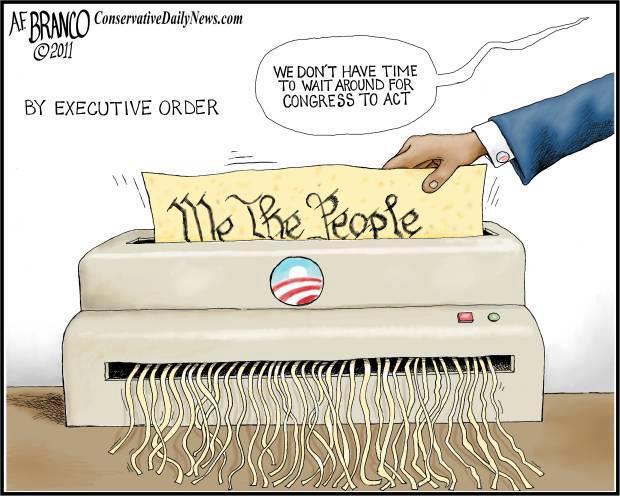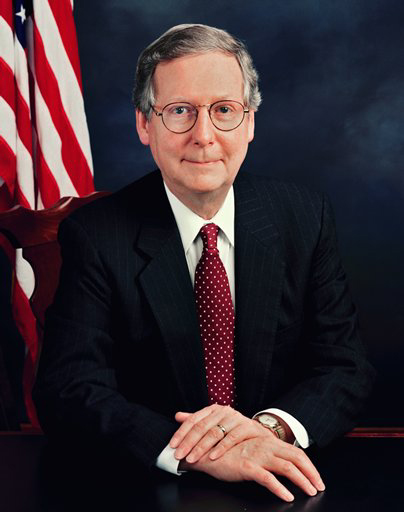Obama recess appointments unconstitutional
By Stephen Dinan – The Washington Times – Friday, January 25, 2013
In a case freighted with major constitutional implications, a federal appeals court on Friday overturned President Obama’s controversial recess appointments from last year, ruling he abused his powers and acted when the Senate was not actually in a recess.
 The three-judge panel’s ruling is a major blow to Mr. Obama. The judges ruled that the appointments he made to the National Labor Relations Board are illegal, and hence the five-person board did not have a quorum to operate.
The three-judge panel’s ruling is a major blow to Mr. Obama. The judges ruled that the appointments he made to the National Labor Relations Board are illegal, and hence the five-person board did not have a quorum to operate.
But the ruling has even broader constitutional significance, with the judges arguing that the president’s recess appointment powers don’t apply to “intra-session” appointments — those made when Congress has left town for a few days or weeks. They said Mr. Obama erred when he said he could claim the power to determine when he could make appointments.
“Allowing the president to define the scope of his own appointments power would eviscerate the Constitution’s separation of powers,” the judges said in their opinion.
The judges said presidents’ recess powers only apply after Congress has adjourned a session permanently, which in modern times usually means only at the end of a year. If the ruling withstands Supreme Court scrutiny, it would dramatically constrain presidents in the future.
And the court ruled that the only vacancies that the president can use his powers on are ones that arise when the Senate is in one of those end-of-session breaks. That would all but eliminate the list of positions the president could fill with his recess powers.
White House dissent

White House press secretary Jay Carney called the ruling “novel and unprecedented,” and said it contradicts 150 years of practice by presidents of both parties.
“We respectfully but strongly disagree with the rulings,” he said.
But Noel Francisco, a lawyer at Jones Day who argued the case for the U.S. Chamber of Commerce and the company that challenged the NLRB appointments, said the court had returned to the Constitution’s intent, which was to make the recess appointment an emergency power for use only when Congress was not available.
“Issues like this — it’s not about protecting the Congress from the president and the president from Congress,” Mr. Francisco said. “The Constitution draws these lines ultimately to limit the government to protect the people.”
In their ruling the judges said their duty is not to speed up the workings of government, but to hold to constitutional principles.
“If some administrative inefficiency results from our construction of the original meaning of the Constitution, that does not empower us to change what the Constitution commands,” the judges wrote.
The judges said the recess power was created for a time when Congress met only a few months out of the year, and was designed for the president to fill vacancies during the long periods when Congress was not meeting. In modern times, when Congress is almost always capable of meeting, the recess powers should be more circumscribed.
In the short term, the ruling invalidates one NLRB decision. But over the longer term it could invalidate a year’s worth of decisions by the independent agency, could undercut Mr. Obama’s new consumer watchdog agency set up in the 2010 Wall Street reform law, and could even call into question decisions made by some judges who were given recess appointments.
Defining recess
The case is likely to end up before the Supreme Court, and will likely on the definition of what the Constitution means when it says “recess.”
Last January Mr. Obama named union lawyer Richard Griffin and Labor Department official Sharon Block, both Democrats, and a Republican, NLRB lawyer Terence Flynn, to the labor board using his recess powers. He also named Richard Cordray to head the new Consumer Financial Protection Bureau, using those same powers.
Noel Canning, a bottling company, sued the NLRB, arguing that a rule issued by the new board was illegal since the recess appointments were unconstitutional. Senate Republicans, led by Minority Leader Mitch McConnell, joined in the suit.
The appeals court panel, which sits in Washington, D.C., was skeptical of Mr. Obama’s case during oral argument in early December, with Chief Judge David B. Sentelle and Judge Thomas B. Griffith peppering the administration lawyers with questions.
The Constitution gives the president the power to nominate judges and executive branch officials, but the Senate must vote to confirm them before they take office. Article II, Section 2 of the Constitution grants the president powers “to fill up all vacancies that may happen during the recess of the Senate.”
Those powers have produced centuries of give-and-take, with senators regularly slow-walking nominees and the White House looking for ways to get its nominees in place — including the recess appointment.
 Mr. Obama, though, appeared to break new ground by acting at a time when the Senate was meeting every third day, specifically to deny him the chance to make appointments.
Mr. Obama, though, appeared to break new ground by acting at a time when the Senate was meeting every third day, specifically to deny him the chance to make appointments.
The problem is the word “recess” has several meanings in legislative-speak. It can mean a short break during the day, it can mean a break of days or weeks for a holiday, or it can mean the end of a yearly session.

The president argued that even though the Senate was convening every three days, the pro forma sessions didn’t allow any business, and nearly every senator was absent from the chamber, signaling that the Senate wasn’t able to perform its confirmation duties and should be considered essentially in recess.
His opponents had warned that if Mr. Obama’s stance prevailed, then presidents could make appointments when the Senate takes its midday recess for weekly party caucus lunches.
The judges on Friday ruled that the only clear bright line is when the Senate recesses at the end of the year.
“The dearth of intra-session appointments in the years and decades following the ratification of the Constitution speaks far more impressively than the history of recent presidential exercise of a supposed power to make such appointments,” the judges wrote. “Recent presidents are doing no more than interpreting the Constitution. While we recognize that all branches of government must of necessity exercise their understanding of the Constitution in order to perform their duties faithfully thereto, ultimately it is our role to discern the authoritative meaning of the supreme law.”
Victor K. Williams, an assistant professor at Catholic University School of Law who filed briefs arguing that the court should reject the case as a political question between Congress and the president, called the judges’ ruling “historically wrong.”

“This panel of the D.C. circuit has accomplished what Minority Leader Mitch McConnell failed to do. Minority Leader McConnell said that his No. 1 objective was defeating Barack Obama and Barack Obama’s attempt to govern. This D.C. circuit panel has been successful where McConnell failed. they have really, effectively challenges the president’s ability to govern,” Mr. Williams said.
The judges’ ruling puts them at odds with several other federal appeals courts that have ruled the other way. And another case is making its way through the D.C. circuit and could be heard by another three-judge panel.
Mr. Williams said the Justice Department faces an interesting choice: It could allow those other cases to work their way through the rest of the courts, or it could appeal immediately to the Supreme Court.
The administration could also ask the full D.C. circuit to re-hear the case.

